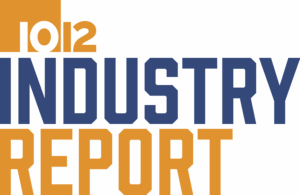What is the typical strategy for eliminating errors? Most of the time it’s whack-a-mole: Find out who made the mistake, knock ‘em over the head, hope everyone else gets the message and wait for the next error to pop up. Surely the other workers saw the pain and suffering endured by the offending party and are going to tighten up. Problem solved; now where’s the next problem? It’s a strategy that’s reactionary and doesn’t fix the underlying problem: a lack of error defenses.
 When an error or accident occurs, there are immediate actions that need to take place to ensure the health and safety of the employees and facility. Once things have stabilized and the dust has settled, rather than looking for who to whack, leadership should do a quick Substitution Test.
When an error or accident occurs, there are immediate actions that need to take place to ensure the health and safety of the employees and facility. Once things have stabilized and the dust has settled, rather than looking for who to whack, leadership should do a quick Substitution Test.
The Substitution Test is pretty simple, but pretty profound. You simply ask: If I removed the person that made the mistake and replaced them with an equally qualified person, could they make the same choices?
If the answer is “yes,” then it’s not a person problem; it’s a process problem and LOWs (latent organizational weaknesses) are present. If we don’t address the LOWs, then we are using “hope” as a strategy. “I hope everyone got the message. I hope the next person can work around existing organizational deficiencies. I hope this doesn’t happen again.”
LOWs can be found everywhere if the organization is willing to look for them. However, this doesn’t mean that you are off the hook and it’s the “organization’s” problem. The “organization” is all of us. If you are the front-line worker, you need to identify and report the items that make it hard for you to perform your job as described. If you are the manager, you need to work within your corrective action system to eliminate the LOWs. Both of you need to follow through to ensure the LOW is fixed and it doesn’t remain a workaround for the next person.
Toolbox Talks offers quick insights and thoughts to use for your toolbox (tailboard) talks. Dave Sowers is a founding member of Knowledge Vine, a veteran-owned human performance training and consulting organization that strives to reduce the frequency and severity of human errors in the workplace. He has almost 30 years of experience in power generation and the utility industry. He is a veteran of U.S. Navy Nuclear Power Program and holds a bachelor’s degree in resources management and a master’s degree in both management and emergency management and homeland security.



